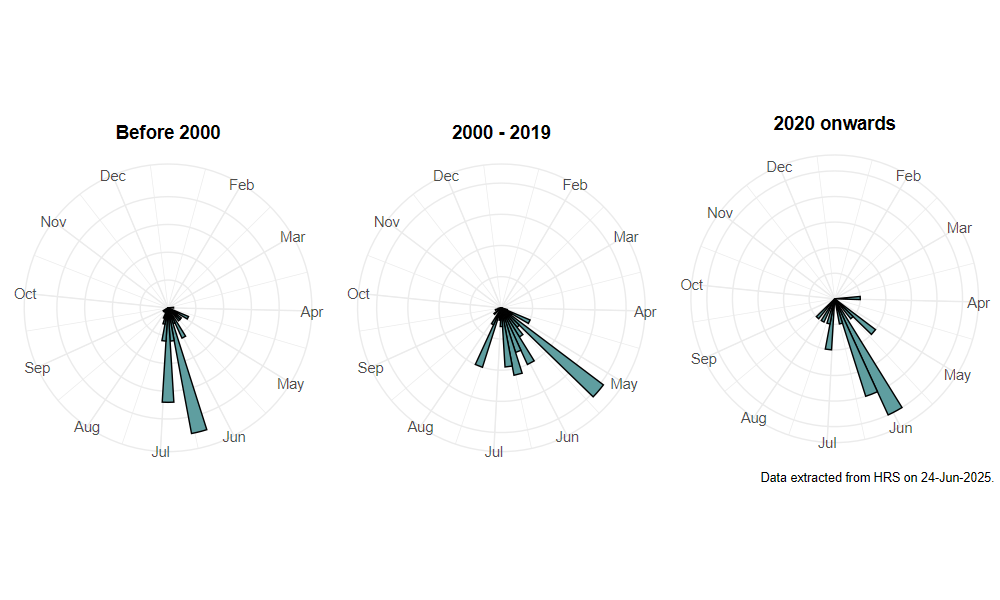Platycheirus europaeus Goeldlin de Tiefenau, Maibach & Speight, 1990
Identification
Identification difficulty = 3. ![]()
![]() according to Ball & Morris, 20241
according to Ball & Morris, 20241
Synonymy
Separated from Platycheirus clypeatus by Speight & Goeldlin (1990)2 and Goeldlin et al. (1990)3.
Biology
The larva is predaceous upon aphids, possibly those associated with sedges Carex sp. However, larvae have not been found in the wild. The adults occur within rank low vegetation and may be found visiting the flower heads of plantains and grasses in keeping with other related species. There are no clear indications of the preferred habitats. Records come from upland conifer plantations, woodland rides on clay and coniferised calcareous heathland in East Anglia. Damper habitats with sedges may be the common feature.
Flight period
The following plots show the number of unique records per week excluding those reported to be of immature stages.

Status
Lower Risk (Nationally scarce) - Ball & Moris, 20144
Distribution
Widely distributed across Scotland, northern England, Wales and the East Midlands.

Trends
The following plots show the Frescalo TFactor vs year and a map of the rescaled frequency (all records) for the species.
-
Ball, S., & Morris, R. (2024). Hoverflies of Britain and Ireland. WILDGuides (3rd ed.). Oxford: Princeton University Press. ↩
-
Speight, M., & Goeldlin de Tiefanau, P. (1990). Keys to distinguish Platycheirus angustipes, P. europaeus, P. occultus and P. ramsarensis (Dipt., Syrphidae) from other clypeatus group species known in Europe. Dipterists Digest (first series), 5, 5–18. ↩
-
Goeldlin de Tiefanau, ., Maibach, A., & Speight, M. (1990). Sur quelques espèces de Platycheirus (Diptera, Syrphidae) nouvelles ou méconnues. Dipterists Digest (first series), 5, 19–43. ↩
-
Ball, S., & Morris, R. (2014). A review of the scarce and threatened flies of Great Britain. Part 6: Syrphidae. ( No. 9). Species status (pp. 1–130). Peterborough: JNCC. ↩